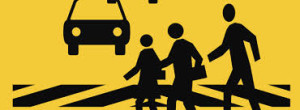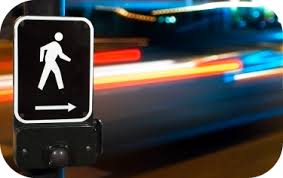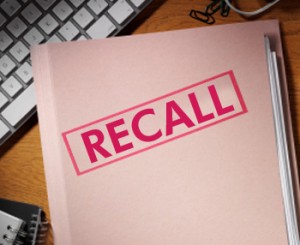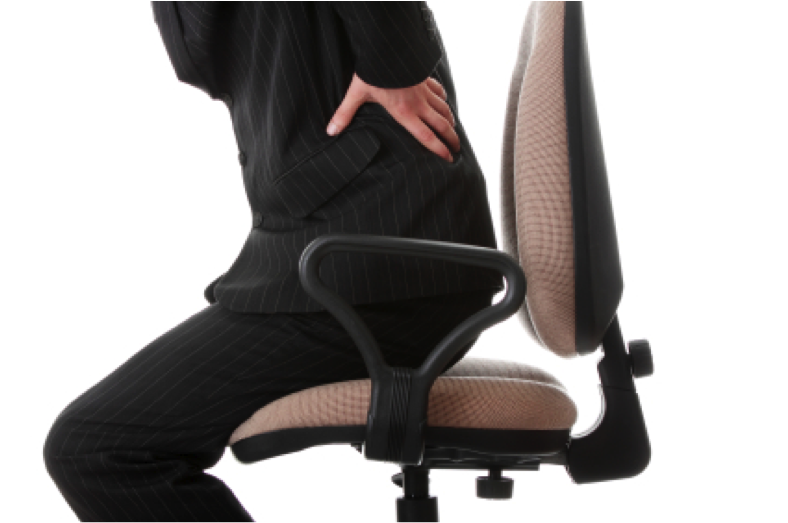Category Archives:personal injury attorney atlanta
Pedestrian Accidents
According to the National Highway Traffic Safety Association (NHTSA), nearly 5,000 pedestrian accidents result in fatalities in motor vehicle related accidents, and over 78,000 pedestrians accidents involving a car or truck result in injuries. Pedestrian accidents also occur due to poor property maintenance, sidewalk or parking lot defects, and construction or other types of debris on walkways can contribute to pedestrian accidents.
Pedestrians may recover damages for injuries involving a vehicle or property defect if someone else’s negligence caused or contributed to the accident. Negligence refers to the failure to do (or not do) something that, in a similar situation, a reasonable person would do in order to protect others from foreseeable risks. In pedestrian accidents, the injured person (plaintiff) must prove that the person at fault (defendant) was indeed negligent. The plaintiff must prove that the defendant: owed a legal duty to the plaintiff under the circumstances; failed to fulfill the legal duty through conduct or action ( or failure to act); caused an accident or injury involving the plaintiff; and harmed or injured the plaintiff as a result.
Careful analysis of the facts of each pedestrian accident must be conducted. When a pedestrian accident occurs, one or more party may be legally responsible for the accident depending on the circumstances. Those with potential liability include: the driver of a vehicle that strikes a pedestrian; the person responsible for sidewalk, roadway or parking lot maintenance where the accident occurred; and the pedestrian him or herself.
Drivers who operate automobiles are required to exercise reasonable care under the circumstance. Failure to do so is considered negligence. Some of the most common factures that contribute to driver negligence include: inattentive or pre-occupied driver; failure to observe speed limits; failure to yield to pedestrians at marked cross walks; disobeying traffic signs and/or signals; failure to signal before turning; disregarding weather or traffic conditions; and driving under the influence.
If you or someone you know is injured in a pedestrian accident, it is best to call a personal injure attorney as soon as possible. At Sunne Law, we are experienced in helping injured pedestrians figure out the best way to assess a legal claim. Call us today for a free consultation.
Product Liability in Georgia
Product liability is the area of law in which manufacturers or vendors of goods are held responsible for injuries caused by faulty or defective merchandise or products that are produced or sold. Product liability includes all parties along the chain of manufacture of any product. This includes the manufacturer of component parts all the way down to the retail store owner. The enforcement of manufacturers’ legal liability helps to make products safer for everyone.
In Georgia, there are three separate legal theories in which a manufacturer can be held responsible for injury or death caused by a defective product. These areas include Negligence, Strict Liability and Implied Warranties.
Negligence is the failure of a manufacturer of a product to exercise ordinary care. There are several ways in which a manufacturer may be liable for injury caused by their product including: negligent design; failure to adequately test and inspect; failure to provide instructions, warnings and labels; and failure to issue an adequate recall notice. Negligence cases can often times be difficult product liability cases because it requires the plaintiff to prove that the defendant’s conduct fell below the relevant standard of care.
Strict Liability refers to the rule applied in product liability suits making a manufacturer, seller or lessor of goods responsible for all defective items, regardless of intent or the exercise of reasonable care, that unreasonably threatens the personal safety of a consumer or the consumer’s property. In Georgia, the product liability law typically protects sellers (who are not manufacturers) of a product from liability under the strict liability doctrine.
Implied Warranties include the implied warranty of merchantability and the implied warranty of fitness for a particular purpose. Georgia law requires “privity of contract” in order to recover under implied warranty theories. An implied warranty refers to certain assurances that are presumed to be made in the sale of products due to the circumstances of the sale, regardless of whether the seller has expressed them orally or in writing.
Defective product liability lawsuits can be very confusing. Many different types of damages exist in these types of cases, only some of which may be available in a particular case. It is to your best advantage to hire an experienced and knowledgeable attorney when it comes to recovering loses in a product liability case. Contact Sunne Law today for a free consultation.
Pedestrian Accidents
 According to the National Highway Traffic Safety Administration (NHTSA), 4,432 pedestrians were killed and an estimated 69,000 were injured in traffic accidents in the United States in 2011. This is an increase of 3 percent from 2010. In 2011, pedestrian deaths accounted for 14 percent of all traffic fatalities and 3 percent of all people injured in traffic crashes. On average, one pedestrian will be injured every 8 minutes and one will die every 2 hours in a traffic accident this year. Unfortunately, pedestrian accidents are common on roads and interstates in Georgia and across the United States. The most common places where pedestrian accidents occur include crosswalks, streets, and parking lots.
According to the National Highway Traffic Safety Administration (NHTSA), 4,432 pedestrians were killed and an estimated 69,000 were injured in traffic accidents in the United States in 2011. This is an increase of 3 percent from 2010. In 2011, pedestrian deaths accounted for 14 percent of all traffic fatalities and 3 percent of all people injured in traffic crashes. On average, one pedestrian will be injured every 8 minutes and one will die every 2 hours in a traffic accident this year. Unfortunately, pedestrian accidents are common on roads and interstates in Georgia and across the United States. The most common places where pedestrian accidents occur include crosswalks, streets, and parking lots.
When a pedestrian in any type of pedestrian accident they have nothing to protect them. Therefore, they are very vulnerable to serious injuries. Pedestrian accidents can include not only being injured by cars, but motorcycles, trucks and even bicycles. Most victims of pedestrian accidents suffer broken bones, severe cuts and lacerations, bleeding and bruising. Injuries that are a result of pedestrian accidents can be severe, debilitating and sometimes permanently life altering. The results of these types of accidents result in significant financial losses to the individuals involved and their families. Although a monetary recovery can never repair the damage that is caused to the victim and their family, it can at lease ease the financial burdens created by pedestrian accidents.
Immediately after a pedestrian accident occurs, the insurance company for the automobile, motorcycle or truck will begin an investigation. Insurance companies have established very specific and elaborate procedures to try to limit the recovery of the injured pedestrian to the lowest possible amount, especially in the early stages of the claim. The insurance company will take recorded statements from the persons involved in the pedestrian accident, interview witnesses, take photographs and obtain the police report pertaining to the pedestrian accident. Typically, the insurance companies try to reach a quick settlement with an injured pedestrian to avoid responsibility for future medical expenses, lost wages and other damages that may develop. In order to avoid this trap and handle the complicated process of a pedestrian accident, a victim of this type of accident should contact a knowledgeable and experienced Atlanta attorney immediately. At Sunne Law, we understand how difficult this can be and are here to help. Contact us today for a free consultation if you are a victim of a pedestrian accident.
Safety While Bicycling in Atlanta
In Atlanta and across the country, biking is an economic and increasingly popular way to travel, and the popularity continues to grow. Urban planners have been working with biking advocates to intensely increase their efforts to incorporate bike-friendly street designs. Bike advocates have also intensified their efforts to spread knowledge and educate cyclists and drivers about biking safety. Information on biking safety and driver awareness as proactive efforts can help to greatly reduce accidents and collisions resulting in injuries and often even fatalities.
There are several ways you can help protect yourself while biking. The number one, and most widely known, thing a bicyclist can do to protect themselves is to wear a helmet. Helmets are 85 to 88 percent effective in preventing traumatic brain injuries, according to the National Highway Traffic Safety Administration (NHTSA). These traumatic brain injuries are the most likely to result in long-term disabilities or death.
The NHTSA offers a few more safety tips to encourage safe pedaling:
- Know the Rules of the Road: Obey traffic signs, signal your turns, yield to pedestrians, etc. Basically follow traffic laws requiring you to ride with the flow of traffic.
- Be Seen: Especially at night, it can be nearly impossible for an automobile driver to see a bicyclist. No matter what time of day or night, you should wear reflective clothing, install reflectors on your bike, and wear a flashing red light or affix one on your bicycle. If possible, you should also try to make eye contact with car drivers in order to help understand their intentions.
- Be Predictable: Ride with traffic and not against it, and avoid sudden swerves in and out of traffic and lanes.
- Share the Streets: This is important for cyclists and motorists. Ride in bike lanes, if they are available. If the road is wide enough, try to ride on the far right side of it.
- Avoid Distractions: Just as you would if you were driving a motor vehicle, stay alert when you are bicycling. Do not wear headphones or talk on a cell phone while riding. And pay attention to traffic ahead of you, next to you and behind you.
- Ride Defensively: You and your bicycle are obviously smaller and more vulnerable than cars and trucks, so use extra caution whenever you are biking near them.
Bicycling is a fun way to exercise while also being a clean form of transportation. Drivers and bicyclists must be smart and aware of the dangers to help prevent accidents on the road. If you are injured in a bicycling accident, make sure to contact a knowledgeable attorney at once. Sunne Law will work diligently to obtain the best possible outcome for your situation.
Georgia's Expedited Dispute Resolution
The Georgia State Board of Workers’ Compensation has made it more convenient for attorneys to submit requests for workers’ comp coverage approval. The board has implemented a new policy for the “Expedited Resolution of Issues”. The policy provides claimant’s attorneys with the opportunity to schedule a conference call with an administrative law judge (ALJ). The purpose of this is discussing an issue that has been raised by the claimants attorney.
Issues of compensability, change of physician requests or issues which would require presentation of evidence will not be raised during these conference calls. This option is available if the need for a resolution arises on matters that have not been disputed. They must be able to be resolved within the scope of an evidentiary hearing. Some matters that could be resolved in this manner include, but not limited to, all matters pertaining problems obtaining authorization to treat with a panel of other authorization for diagnostic testing recommended by the authorized provider, unpaid medical bills, or accidental or improper suspension of benefits. This option is not available for change of physician requests or issues that may require evidentiary hearing.
If you are granted a conference call the board will order the call to be set for a specific time. If you do not participate the judge can consider the action a “willful refusal’ of a board order and may impose civil penalties. There are no specific guidelines for a specific period of notice before the call is to take place. You will be receiving an email notifying you as to when the call will be initiated.
There are basically three options available:
-
Attempt to resolve the issue with the claimant’s counsel before the call.
-
hire counsel to represent you during the conference call
-
Conduct the conference call without the help of council. If you decide it appropriate to retain counsel, it is recommended you contact defense counsel and provide some background information in order to prepare your attorney to defend you.
Lump Sum Advances
If you are injured at work in Georgia and are receiving workers’ comp benefits, it might be difficult to make ends meet. The state of Georgia’s workers’ compensation insurance for temporary total disability pays 2/3 of your pre-injury wage with a cap of $525 per week. For many people this can make life quite difficult. Fortunately, there are a few options that may relieve some of the burden.
One option is to apply for a loan and borrow against your future permanent impairment rating, future settlement or future verdict. There are several companies that offer this type of very high interest loan. This option is not recommended and should only be used if you are facing a dire financial situation such as losing your home or another situation that must be addressed quickly. Typically you will owe close to twice the amount you borrow after interest and fees are added to the total.
Another, better option is to request a lump sum advance on your future permanent partial disability (PPD) rating. You can visit Georgia’s State Board of Workers’ Compensation website and fill out a form WC-25. You are required to have been on temporary total disability (TTD) benefits for 26 weeks (or 6 months) in order to qualify for this option. Typically the workers’ compensation insurance adjuster (or attorney) will agree to this as long as your request is reasonable when compared to your injury and likely PPD rating.
If the worker’s compensation insurance adjuster does not grant your request, you can file the form WC-25 with Georgia’s State Board of Workers’ compensation, then wait 15 days for the other side’s objection. You will be notified if the Administrative Law Judge grants you an advance. If you have questions about Georgia’s workers’ compensation law related to lump sum advances you should contact an attorney.
Atlanta Workplace Back Injuries
Back injuries and back pain from related injuries make up the majority of workers’ compensation claims. Back pain is often times the result of a work-related injury caused by lifting something the wrong way or falling. Sometimes injuries to knees can upset the injured worker’s gait causing them to lose their balance. An aching back can be very frustrating and exhausting. Below are a few tips to help you manage and/or prevent back pain while at work and limit the use of narcotic pain medication.
Do Not Slouch! Whether standing or sitting, be aware of your posture. Sitting for sustained periods of time puts too much pressure on the discs and joints in your back. It is recommended to get up from your chair once an hour, walk around every half-hour. Stretch your arms to the ceiling, do some lunges and limber up, roll your head from side to side to stretch your neck and shoulders.
It is recommended sitting back at a 135 degree angle allowing your muscles to relax. Position your monitor so you can hold your head straight with your feet resting lightly on the floor.
Use caution and sense if your job involves heavy lifting. Be conscious of the way you are moving your body. When you bend or lift something, use your knees and stomach muscles, hold the object close to your body and lift with your leg muscles. Look up at the ceiling and lift straight up using your leg muscles making sure to not bend forward.
Train your core muscles to support themselves therefore reducing the stress on the injured muscles. Gym machines and exercises that target the back and bikram yoga area are necessary to strengthen the muscles needed to support the spine.
Back injuries can linger and become very discouraging. Preventative care to avoid back problems is always ideal, however If you, like so many workers, suffer from a back injury or back pain it is important to seek professional treatment before it gets worse.
Proving Personal Injury
Proving personal Injury – perserving evidence
One of the major reasons persons are not as successful as they would have liked in personal injury lawsuits is due to the lack of sufficient evidence. Juries find liability and award monetary damages based on the evidence presented to them. If there is insufficient evidence to prove the defendant’s liability in a personal injury case; then the defendant will not fully be held accountable and the injured party will not be awarded damages. That is why preserving evidence and documenting your injury and recovery is an important part of a personal injury claim and lawsuit.




